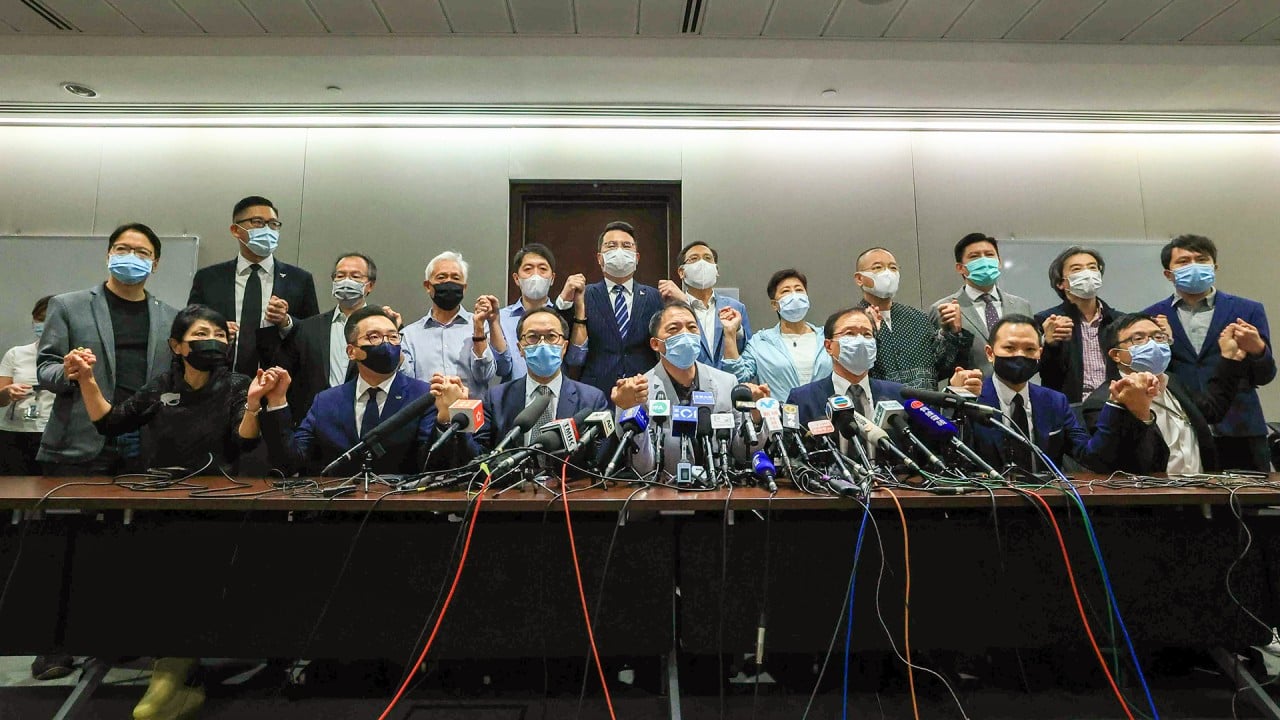
Why Hong Kong should not give up on democratic elections despite disqualification of lawmakers
- Although the disqualification of four lawmakers has called into question whether pro-democracy candidates should contest elections any more, doing so still serves a purpose even when the odds are stacked against them
Therefore, Beijing threw a tantrum by moving to exercise complete control over Hong Kong’s internal affairs, showing the world how “two systems” virtually exists in name only, and that “one country, two systems” is all but dead.

04:08
Hong Kong opposition lawmakers to resign en masse over Legislative Council disqualifications
The significance of elections is twofold. First, elections are a means for the public to express their opinions and are thus a major component of democracy. Elections mobilise the public to participate in democratic activities and enable them to realise the value and importance of the democratic system.
The extradition bill movement was an unstoppable force when it erupted last year because Hongkongers had had enough of the increasingly tight control Beijing has been exercising over Hong Kong these years.
The NPC Standing Committee’s decision last month is another nail in the coffin as it defined the characteristics of a “patriot” and gave the chief executive the power to disqualify Legco members accordingly. This is effectively amending the Basic Law, destroying the separation of powers between the legislature and the executive, and concentrating all the power into the hands of Beijing’s servant – the chief executive.
Nevertheless, I would still argue that elections are important because they give people a way to express their opinions under an authoritarian regime. I am well aware that some people may question the point of democrats running for Legco due to the limitations to what they can achieve as lawmakers.
That is true. Under Beijing’s total control, filibustering is not allowed, protesting is not allowed, there really is not much a legislator can do. However, each vote for a democratic candidate symbolises the democratic vision and belief of the people of Hong Kong.
Even if the democratic candidate does not win in the end, the votes he or she receives are all protest votes against Beijing’s erosion of the “one country, two systems” and the central government’s activities in Hong Kong. Even if the candidate fails to be elected, if enough people vote, it can also show the world the will of Hong Kong’s people.

04:35
What does ‘one country, two systems’ mean?
The second equally important meaning of elections is that it signifies people’s determination to achieve democracy despite the difficult circumstances.
We can always look back at what happened in the past for lessons in the future. The way Beijing crushed Hong Kong’s extradition bill movement and demands for democracy through tougher laws last year resembles how the USSR ended the Prague Spring in Czechoslovakia through tanks and invasion in 1968.
Czechs at the time were discontented with their state of affairs, but they had no choice but to tolerate it. The country, along with other Eastern European nations, finally democratised after the world’s third wave of democratisation brought about the Velvet Revolution and the dissolution of the USSR.
History tells us that complete democratisation is often the result of people’s continuous fight over an extended period of time. Many Hongkongers may feel helpless now, but the extradition bill movement taught us that as long as we keep the faith and persevere, there is hope.
The challenges ahead may compel us to use other ways to join forces, but we have to prepare ourselves for dawn. I have absolute confidence that Hongkongers will overcome the challenges ahead with courage, wisdom and determination.
Wu Chi-wai is a former chairman of Hong Kong’s Democratic Party, and one of the 15 lawmakers who resigned in protest last month

